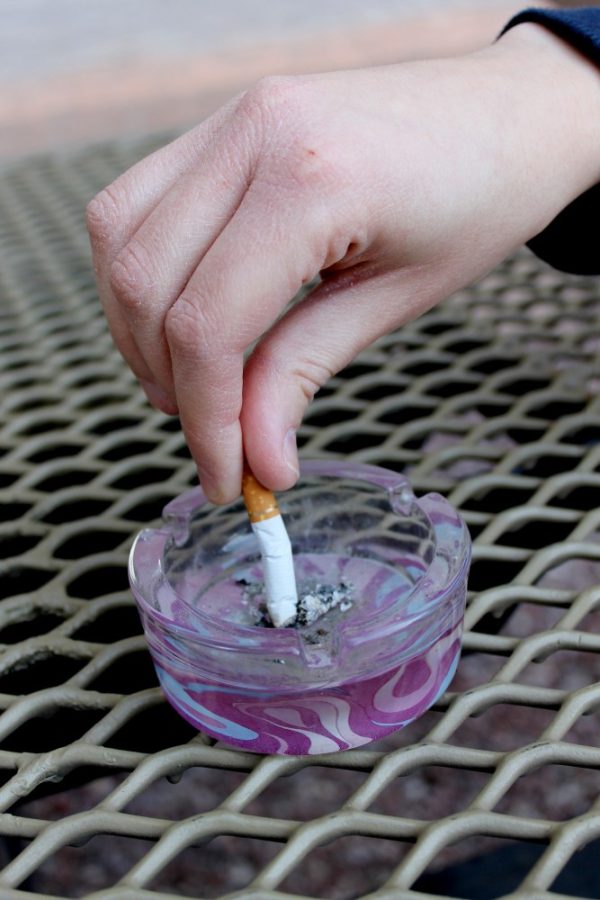The UA Health Network implemented a ban on smoking and tobacco products both in and outside of its hospitals to promote a healthier environment.
Beginning on Jan. 1, the network, which oversees the University of Arizona Medical Center–University Campus, the University of Arizona Medical Center–South Campus and dozens of clinics in Tucson and Southern Arizona, will not allow smoking outside in any facet — not even in the hospital’s parking lot. “Butt huts,” or designated smoking areas, are also no longer options.
It was important to ban tobacco products because, as a leading health care institution, having a tobacco-free environment was appropriate, according to John Marques, vice president and chief human resources officer for the network.
“Tobacco-related illnesses are a leading cause of death,” he said. “We decided it was right for us to do.”
Many options are offered to patients and their families to help them quit smoking.
Employees, along with their spouses, children, parents, siblings or significant others, can join the Quit & Win Tobacco Free Living Program through the UA Department of Family and Community Medicine. The program, Marques said, is designed for individuals who may need targeted, structured and medically supervised approaches to quitting.
Another option available to Health Network employees is the Helpers Program, which was developed by Myra Muramoto, a professor in the department of Family and Community Medicine. She not only advised the network to go through with the new ban, but also helped UA President Eugene Sander quit smoking.
The program, she said, aims to train volunteers to encourage tobacco users to quit in a nonjudgmental, nonconfrontational and respectful way.
“We want them (the volunteers) not to be pushy,” she said. “We want them to be a resource. Most tobacco users want to quit at some time … some sooner than later.”
The Helpers Program is free and available to anyone in Arizona, in person or online.
Additionally, the network will provide nicotine replacement therapy gum free of charge through pharmacies to its patients and their families who need it.
“Some folks are there (in the hospitals) for an extended period, even days at a time,” Marques said. “We realize that may be a challenge for smokers.”
Both Muramoto and Marques said the ban has become widely supported.
Muramoto said the ban is the only way the UA Health Network can recognize that tobacco hurts bodies and lives and is a main cause of preventable death and illness in our country.
Marques said many people understood the importance of a health institution going tobacco-free, and said there has been a lot of positive response in the community as well.
“We are committed to be a tobacco-free environment for our staff and our families to have a positive and healthy environment,” he added.









